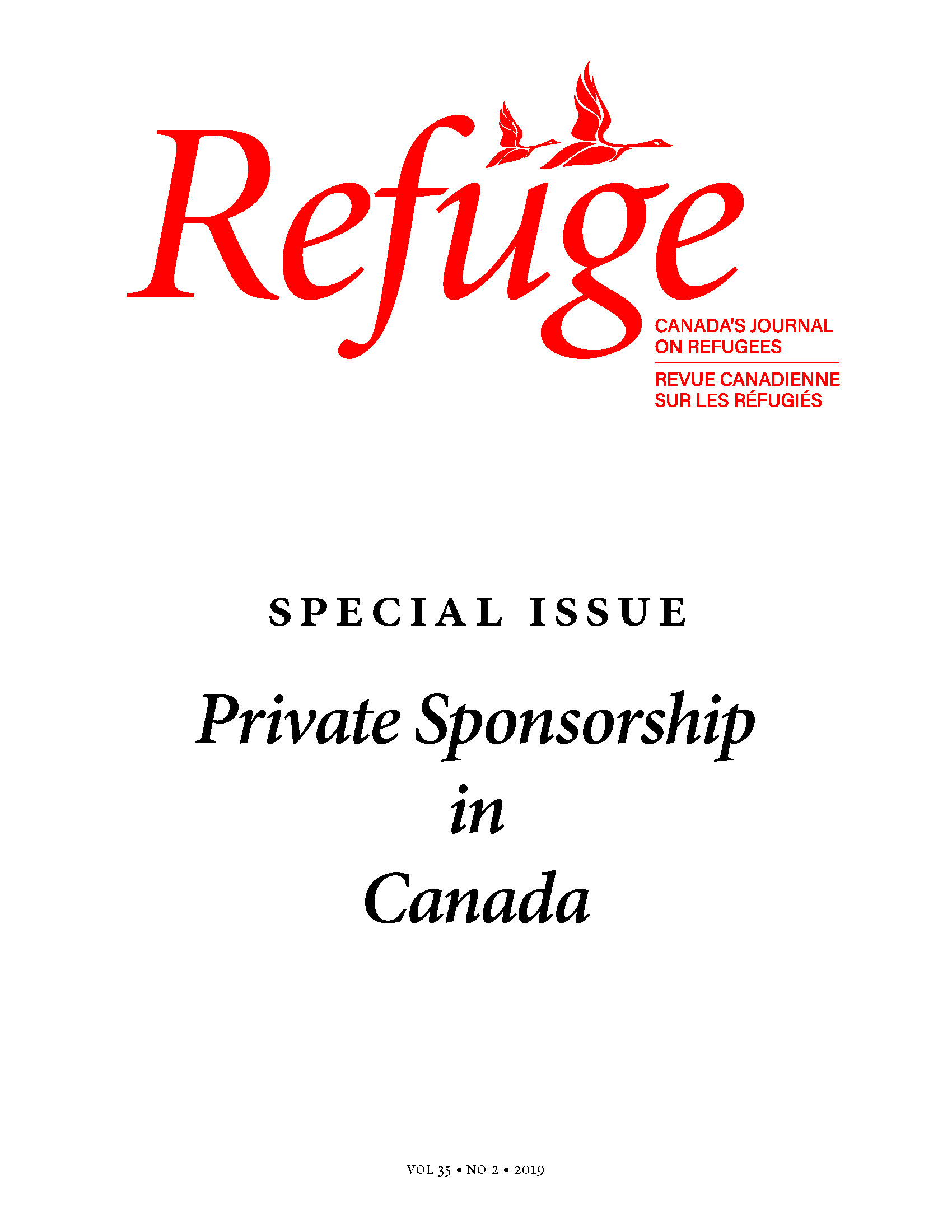What Role Does Type of Sponsorship Play in Early Integration Outcomes? Syrian Refugees Resettled in Six Canadian Cities
DOI:
https://doi.org/10.7202/1064818arKeywords:
Canada, Syrian refugees, private sponsorship, refugee sponsorship, government assisted refugees, GAR, social integration, social networksAbstract
Abstract
There is little longitudinal research that directly compares the effectiveness of Canada’s Government-Assisted Refugee (GAR) and Privately Sponsored Refugee (PSR) Programs that takes into account possible socio-demographic differences between them. This article reports findings from 1,921 newly arrived adult Syrian refugees in British Columbia, Ontario, and Quebec. GARs and PSRs differed widely on several demographic characteristics, including length of time displaced. Furthermore, PSRs sponsored by Groups of 5 resembled GARs more than other PSR sponsorship types on many of these characteristics. PSRs also had broader social networks than GARs. Sociodemographic differences and city of residence influenced integration outcomes, emphasizing the importance of considering differences between refugee groups when comparing the impact of these programs.
Metrics
Downloads
Published
How to Cite
Issue
Section
License
Copyright (c) 2019 Michaela Hynie, Susan McGrath, Jonathan Bridekirk, Anna Oda, Nicole Ives, Jennifer Hyndman, Neil Arya, Yogendra B. Shakya, Jill Hanley, Kwame McKenzie

This work is licensed under a Creative Commons Attribution-NonCommercial 4.0 International License.
Refuge authors retain the copyright over their work, and license it to the general public under the Creative Commons Attribution-Non Commercial License International (CC BY-NC 4.0). This license allows for non-commercial use, reproduction and adaption of the material in any medium or format, with proper attribution. For general information on Creative Commons licences, visit the Creative Commons site. For the CC BY-NC 4.0 license, review the human readable summary.







